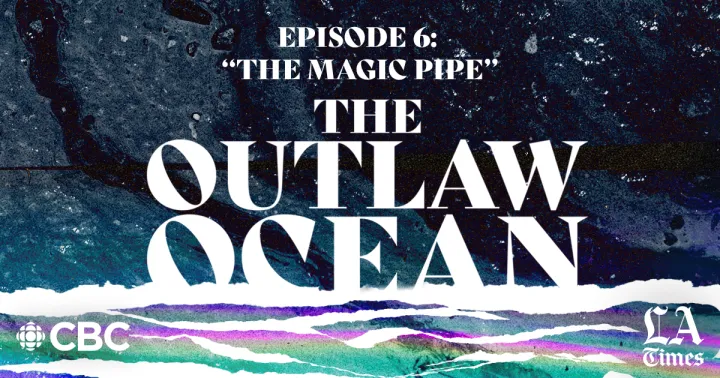THE OUTLAW OCEAN PODCAST
Episode 6: Oil spills aren’t the biggest problem — deliberate dumping is

When a ship inadvertently spills oil, it’s big news. But according to an investigation by The Outlaw Ocean Project, a non-profit journalism organisation based in Washington, DC, every three years, ships intentionally dump more oil than the Exxon Valdez and BP spills combined.
On 23 August 2013, Chris Keays, a newly hired engineer on an American cruise ship, the Caribbean Princess, knew immediately that something was amiss in the ship’s engine room.
See The Outlaw Ocean Project here.
The 28-year-old Scotsman was a low-level engineer who had just graduated from nautical school when he signed up for what he believed was his dream job aboard the 300m ocean liner, one of the largest passenger ships on the planet.
The famed ship was a floating village with a mini golf course, a casino, an outdoor movie theatre and 19 decks, with room for more than 3,000 passengers and roughly 1,000 crew.
Venturing into an unfamiliar section where he did not typically work, Keays saw an illegal device known in the industry as a magic pipe. From his marine studies in Glasgow, Keays knew exactly what he was looking at.
Several metres long, the pipe stretched from a nozzle on a carbon filter pump to a water tank. Its magic trick? Making the ship’s used oil and other nasty liquids disappear.
Rather than storing the highly toxic effluent and unloading it at port, as the ship was legally required to do, the pipe was secretly flushing the waste into the ocean, saving the ship’s owner, Carnival Corporation, millions of dollars in disposal fees and port delays.
Keays used his cellphone to take shaky video and pictures of the pipe, as well as photographs of the engine room computer screen that showed how discharges were being manipulated.
The sixth episode of The Outlaw Ocean podcast, from CBC Podcasts and the L.A. Times, highlights a vexing and woefully under-discussed problem made possible by corrupt ship captains who use the so-called “magic pipe” that dumps oil discreetly under the water line rather than dispose of it on land as is legally required.
This case is set in a broader context of other forms of at-sea dumping, such as plastic pollution, and highlights how the sea has long (and perilously) been viewed as a bottomless trash can.
Listen to it here:
Cruise liners, like most large ships, burn massive amounts of the dirtiest fuel on the market. Before it is used, the fuel is filtered and spun to remove water, debris and chemical impurities, a process that produces what is called engine sludge. Disposing of this especially toxic waste is costly.
Cruise liners also produce millions of gallons of oily water. This is the runoff of lubricants and leaks that drip from the ship’s many diesel generators, air compressors, main propulsion engines and other machines, and which drain into the ship’s bilge tanks.
Other liquid wastes accumulate, too.
“Black water” refers to sewage from hundreds of toilets flushing day in and day out. “Gray water” comes from washing dishes and clothing for the thousands of passengers aboard, or from the slimy food scraps and grease from the ship’s galleys and restaurants.
Some of these liquids can be released into the ocean after light treatment, but ship engineers are responsible for ensuring that none of the nastiest fluids get discharged.
Sometimes, though, these engineers and their companies resort to magic pipes to make those fluids disappear.
Visit Daily Maverick’s home page for more news, analysis and investigations
In subsequent court papers, Carnival called the Caribbean Princess an isolated case.
But oil logs from the company’s other ships, also disclosed in court records, indicated that oil dumping was a widespread practice, and that on occasion, engineers on other Carnival ships tricked the monitoring equipment by pulling in the same volume of salt water to replace the liquids they dumped.
On the Caribbean Princess, the company had installed three separate machines to monitor and collect waste oil, well beyond what was required by law.
Carnival often pointed to the additional machines as proof of its commitment to environmental stewardship. Meanwhile, onboard engineers had devised systems to bypass each of the three monitors.
After discovering these ruses, federal prosecutors wrote that Carnival, whose income in 2016 was roughly $2.7-billion, had a “high consciousness of guilt”.
In 2016, a federal judge levied a $40-million fine against the company, the largest penalty of its type in nautical history. DM/OBP
Ian Urbina is the director of The Outlaw Ocean Project, a non-profit journalism organisation based in Washington, DC, that focuses on environmental and human rights concerns at sea globally.






















 Become an Insider
Become an Insider
Comments - Please login in order to comment.